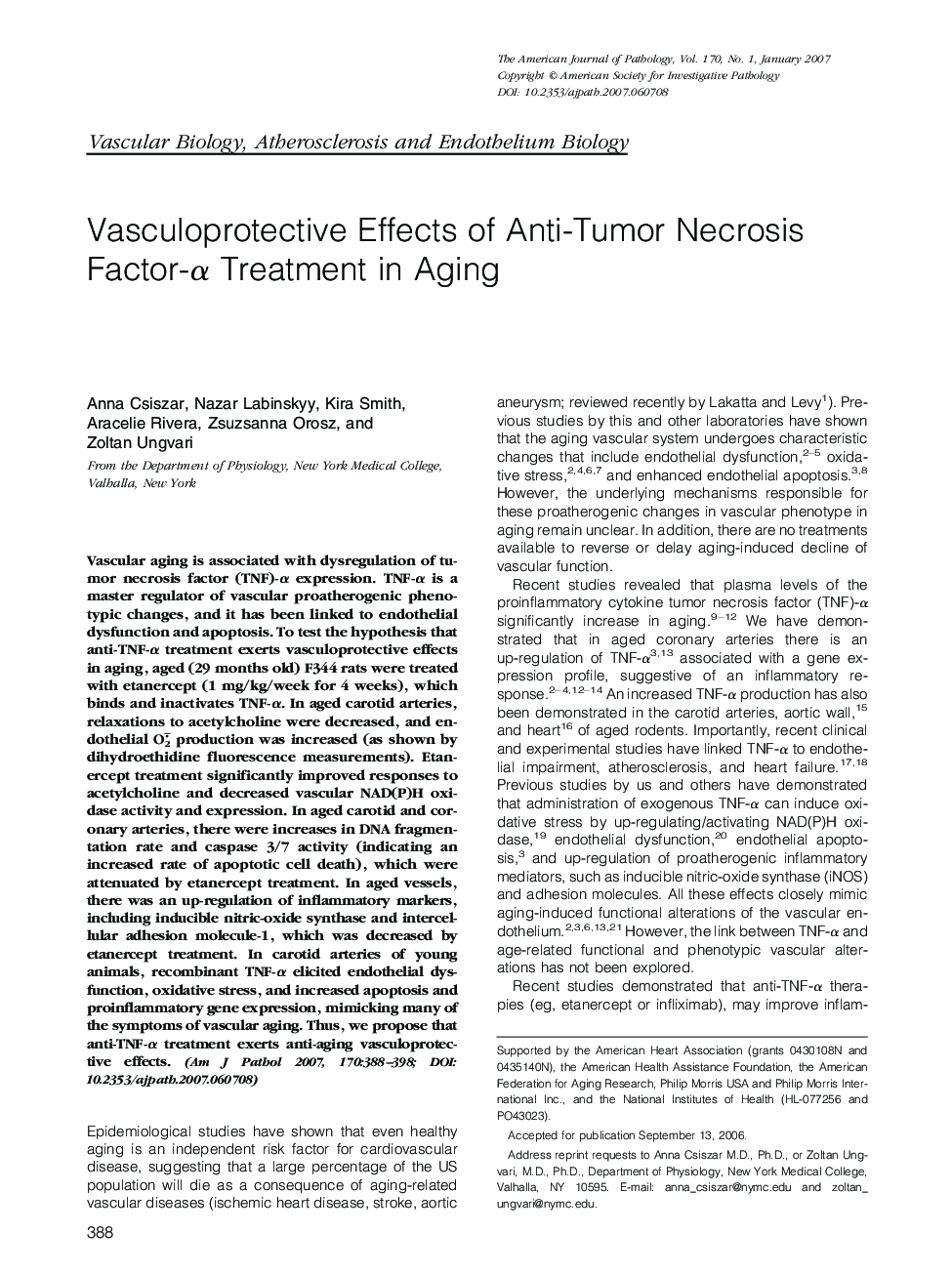| Article ID | Journal | Published Year | Pages | File Type |
|---|---|---|---|---|
| 2866196 | The American Journal of Pathology | 2007 | 11 Pages |
Vascular aging is associated with dysregulation of tumor necrosis factor (TNF)-α expression. TNF-α is a master regulator of vascular proatherogenic phenotypic changes, and it has been linked to endothelial dysfunction and apoptosis. To test the hypothesis that anti-TNF-α treatment exerts vasculoprotective effects in aging, aged (29 months old) F344 rats were treated with etanercept (1 mg/kg/week for 4 weeks), which binds and inactivates TNF-α. In aged carotid arteries, relaxations to acetylcholine were decreased, and endothelial O production was increased (as shown by dihydroethidine fluorescence measurements). Etanercept treatment significantly improved responses to acetylcholine and decreased vascular NAD(P)H oxidase activity and expression. In aged carotid and coronary arteries, there were increases in DNA fragmentation rate and caspase 3/7 activity (indicating an increased rate of apoptotic cell death), which were attenuated by etanercept treatment. In aged vessels, there was an up-regulation of inflammatory markers, including inducible nitric-oxide synthase and intercellular adhesion molecule-1, which was decreased by etanercept treatment. In carotid arteries of young animals, recombinant TNF-α elicited endothelial dysfunction, oxidative stress, and increased apoptosis and proinflammatory gene expression, mimicking many of the symptoms of vascular aging. Thus, we propose that anti-TNF-α treatment exerts anti-aging vasculoprotective effects.
